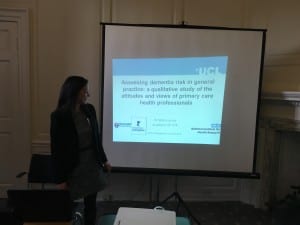The consequences of Covid-19 for health policy in England
By Nathan Davies, on 12 August 2020
In this Post Steve Iliffetalks about how Covid-19 has changed the NHS and health policy in England.
 The new coronavirus that arrived in the UK in January 2020 has triggered changes in the NHS which will be difficult to reverse, at least in the short to medium term. Crises lead to change when three conditions are met: there must be a latent desire for change, plus capacity to change, which pre-date the crisis; the crisis needs to reinforce the arguments for change, and even pre-figure new ways of working; and a political alliance is needed to turn the possibility of change into reality1.
The new coronavirus that arrived in the UK in January 2020 has triggered changes in the NHS which will be difficult to reverse, at least in the short to medium term. Crises lead to change when three conditions are met: there must be a latent desire for change, plus capacity to change, which pre-date the crisis; the crisis needs to reinforce the arguments for change, and even pre-figure new ways of working; and a political alliance is needed to turn the possibility of change into reality1.
In the beginning
The place and funding of Public Health as a discipline became a hot topic in the coronavirus debate as public health experts gave differing views of how to manage the pandemic. The ‘herd immunity’ view (building up a protective sub-population of the immune) was favoured initially, on the grounds that testing as many as possible of the whole population was impractical. The ‘herd immunity’ view gave way to the World Health Organisation’s strategy of mass testing in mid-March, but there were political as well as scientific reasons for this change.
Public Health, taken into the NHS from local government in 1974, was restored to local government control in the Lansley Reforms of 2012. Like the rest of local government, it has experienced substantial cuts in its budget over the last decade. Public Health has been under-resourced and the adoption of ‘herd immunity’ strategy reflected the inability to mobilise the resources needed for mass testing and contact tracing. National government has therefore opted for the second-best option of mitigating (but not controlling) the effects of COVID-19, in a country in which successive governments have deliberately underfunded Public Health services.
Changing strategy
Although it still has its advocates, the herd immunity strategy failed. The government turned to mass testing combined with containment measures (social distancing and closure of public spaces) as the optimal method for containing the pandemic. The change in strategy did not alter the problem of limited resources. Accident and Emergency departments were struggling with high levels of demand before the pandemic’s arrival, there were (by one estimate) 100,000 job vacancies across the health service, and historically the NHS had spent relatively little on intensive care facilities or staff.
An attempt to mitigate the impact of the virus by promoting voluntary action by individuals reflected not only the Conservatives’ ideological hostility to “big government” but also a belief that most people could be nudged (but not coerced) into following public health advice. This optimism ignores the evidence that people in affluent and individualistic societies easily adopt an ‘eat, drink and be merry’ culture, breaching social distancing (and other health preserving) rules as they do so.
The epidemiological modelling of Covid-19’s spread began to alarm politicians. They abandoned voluntary restraints on movement and gathering and imposed a more stringent “lock down” designed to slow virus spread and reduce demand for hospital care for those whose infection became life-threatening2.
A shambles
A seven-week delay in introducing containment measures – a delay described by one academic as “near criminal negligence” and “obfuscation”3– resulted in recurrent shortages of Personal Protective Equipment (PPE) which provoked angry responses from NHS staff. The TV image of the Health Secretary loading boxes into a van showed what a shambles NHS supply had become. The Health Care Supply Association admitted to a “system” failure, but without naming names or pointing fingers. According to the Health Service Journal some trusts turned to alternative suppliers to source protective kit, including DIY shops. Staff working in central purchasing teams reported particular difficulties in getting hold of PPE, including a lack of UK-based manufacturers, other countries restricting exports in order to meet their local demand, poor quality products arriving as buyers worked in a hurry, and some unjustified price rises introduced by suppliers. In some places protective kit was delivered to the NHS by army lorries.
Similar problems appeared once the government had changed strategy and promised widespread screening; screening tests were not available and university laboratories that could have contributed to test analysis had been mothballed and their staff sent home as part of university lockdowns 4. NHS plans to test were poorly executed. On 2nd April, The Times ran the front page headline “Virus testing plans in chaos” over an image of a large drive-through testing centre at Chessington World of Adventures at which nobody was being tested.
NHS takes control
The NHS then demonstrated what a real command-and-control management style could look like in a huge institution made up of intertwined and sometimes competing bodies. Some of these management actions may prefigure or bring about future changes. They include:
- Commissioning NHS England took over commissioning services from Clinical Commissioning Groups (CCGs), which had anyway failed to transform the ways in which the NHS worked over the preceding decade. There was latent desire for change and the crisis required the NHS centre to work around CCGs. It seems unlikely that the CCG form of commissioning will be restored.
- General Practice The NHS increasingly dictates the terms under which the public contact their GPs, encouraging doctor-patient communication via video consultations and email. The technologies for virtual consultations that took the commercial provider Babylon years to establish in two cities have become established across general practice in weeks. General practitioners are beginning to look like doctors working in a salaried service, instead of being sub-contractors. There is growing interest in a salaried option, especially among younger GPs5. Here there has been a growing sense in general practice that it could not go on in its present form, and NHS England agreed, although it did not anticipate a sudden change.
- Spare capacity and labour direction Not only has the NHS taken up direction of professional labour, encouraging forward movement of specialists into A&E departments and seconding nurses to work in field hospitals, but it is also mobilising ‘returners’ from among the recently retired. Volunteers have also come forward in large numbers to provide temporary support for isolated people staying at home without family support. Managers in the NHS will want new, flexible ways of working to remain but some professionals may want to return to the status quo ante; both camps will search for political alliances.
New capacity was created by conversion of existing premises into infectious disease wards with ventilation capacity, and by construction of large field hospitals like the 4,000-bed Nightingale Hospital in London. The NHS bought almost all spare capacity (in terms of beds and staff) in the commercial medical sector. These acquisitions may not be permanent but there will be a backlog of postponed surgery and cancer treatments to work through, and spare capacity in theatres and beds will help this. The need for slack in the system has been acknowledged for a decade but now there is publically visible spare capacity which may prove difficult for politicians to close.
- Integrated health & social care By contrast, the NHS has failed, despite decades of talking, to reach agreement with local government social services, and so is still handicapped in transfers of mostly older people with multiple problems out of hospitals into community settings. Retired social workers are not being called back into action.
This historic mismatch may yet change, but it will probably do so slowly. There are accounts of some Integrated Care Organisations (which depend on collaboration between local government and the NHS) developing quickly because managers who would often act as brakes to progress are absent, dealing with Covid-19 planning. Others report that the NHS and local government operate with same distrust and disregard for each other as usual.
This is a deeply entrenched problem that successive governments have promised to uproot, but nothing much has happened. One suggestion that may offer employment opportunities during the coming recession is the formation of a community health worker service staffed by young people who have gone through a crash training programme6. And smaller changes may also make a difference. How different the NHS response to Covid-19 might have been if Advance Care Plans were in place for vulnerable older people like those living in care homes. Such plans should contain the option for us to decline ventilation, just as we may decline resuscitation. The NHS knows what to do but government has prevented change; it will probably work around the problem, but avoid trying to solve it
- Market mechanisms The government has abolished payment by results and payment by performance in the NHS, and suspended payments for target achievement in general practice. It has also written off the debts that hospital and community trusts have run up with the Department of Health, a “hair cut” that has been talked about for two years. These are blows to the marketisation of the NHS, and will re-inforce the existing enthusiasm for direct control of the NHS from the centre. The NHS is beginning to look like a service that is clinically-led rather than target-driven. The supply failures suggest that it is time for the NHS to grow its own PPE and diagnostic testing kit manufacturers, in-house. A long-standing policy of marketisation may well be rolled back further when the full benefits of command and control management become evident
- Public engagement & case mix Constant encouragement to relieve pressure on the NHS seems to have had an effect; attendances at A&E departments fell by one third in March 2020, the biggest fall being among young adults. With hospitals being depicted as dangerous, infectious places, potential A&E users are understandably avoiding them. Supplier-induced demand may also be reduced, as doctors and nurses prioritise those with infections and pay less attention to others, reducing follow-up or onward referral to outpatient clinics of patients who do not have Covid-19. Use of health services (often confused with ‘demand’) has risen relentlessly, but Covid-19 has stopped this. The public will want normal services to resume. There may be a latent desire to change but not the capacity; Covid-19 is a disruptor that causes an emergency mobilization but not long-term changes in behaviour.
These are only the most salient of examples of possible long-term changes in the NHS being initiated by short-term responses to Covid-19. Not all changes will take root. But overall the old order of the NHS will be shaken.
This blog is an expanded version of ‘The NHS takes control’, published in Renewal – a journal of social democracy 2020;28(2):15-19
Sources:
- Matthew Taylor How the coronavirus crisis could change the nature of government and democracy The Policy Institute, Kings College London. 3rd April 2020
- Sarah Dalglish Covid-19 gives the lie to global health expertise The Lancet March 26th 2020
- The lockdown and the long haul, The Economist 21st March 2020
- Joe Buckley & colleagues A science-based socialist response to Covid-19 Scientists for Labour March 2020
- Jacqui Thornton How coronavirus will change the face of general practice forever BMJ 2020;369: m1279
- Andy Haines and colleagues, National UK programme of community health workers for Covid-19 response. The Lancet March 24th 2020
 Close
Close



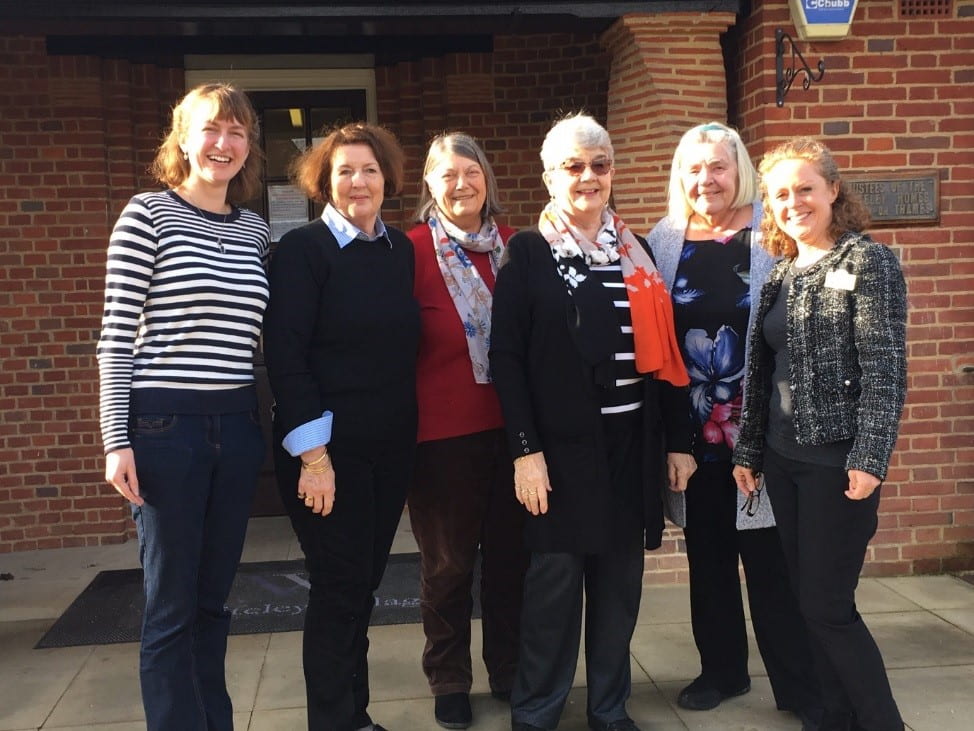





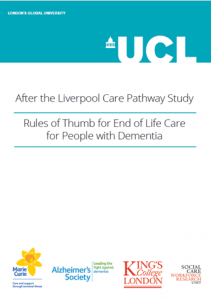

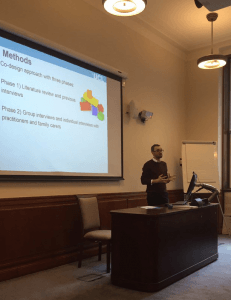
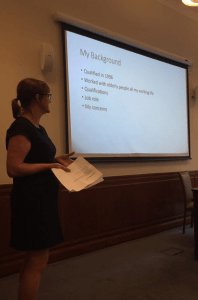

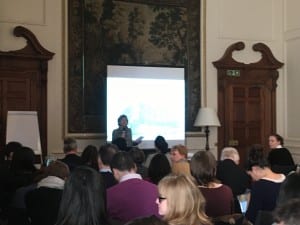
 However, the dragons were fierce in expressing their concern that HELP DIABETES would be another tool best suited to those who are already self motivated. The second pitch was by the medical education department at Imperial College London, who were asking for all medi
However, the dragons were fierce in expressing their concern that HELP DIABETES would be another tool best suited to those who are already self motivated. The second pitch was by the medical education department at Imperial College London, who were asking for all medi They put forward a passionate argument that this would improve their understanding of health inequalities and provide experiential learning of working with marginalised groups. This was a moving presentation that tugged at the heart strings of the audience, but the dragons questioned what would be removed from the curriculum in order to make way for this initiative. The last and final pitch was an online pathway, which offered advice, testing and treatment for chlamydia. Being practical and having demonstrated proof of success, it sealed the deal.
They put forward a passionate argument that this would improve their understanding of health inequalities and provide experiential learning of working with marginalised groups. This was a moving presentation that tugged at the heart strings of the audience, but the dragons questioned what would be removed from the curriculum in order to make way for this initiative. The last and final pitch was an online pathway, which offered advice, testing and treatment for chlamydia. Being practical and having demonstrated proof of success, it sealed the deal. 


